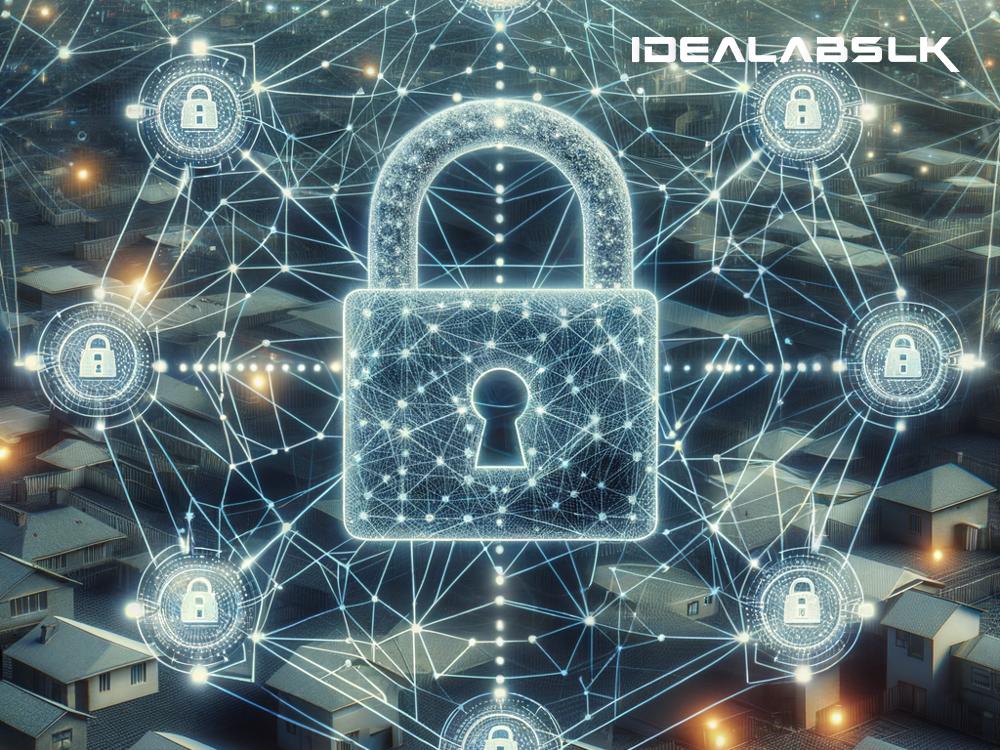Blockchain for Real Estate: Revolutionizing Property Transactions for Enhanced Security
In today's world, buying or selling a property can feel like navigating a maze. It involves a heap of paperwork, various middlemen, and, most frustratingly, a long waiting period. However, a new technology known as blockchain is set to revolutionize this process, making it faster, more transparent, and secure. But what exactly is blockchain, and how is it impacting the real estate sector? Let's dive in and explore how blockchain is facilitating more secure property transactions.
Understanding Blockchain
Imagine a digital ledger that's accessible by multiple people at the same time but is also incredibly secure and nearly impossible to hack. That's blockchain. It's essentially a system that records information in a way that makes it difficult or impossible to change, cheat, or hack. Originally developed for digital currencies like Bitcoin, blockchain technology has promising applications in various fields, including real estate.
The Power of Blockchain in Real Estate
The traditional process of buying and selling property is laden with numerous steps, checks, and intermediaries such as brokers, lawyers, and banks. Each of these steps adds time and cost to the transaction. Blockchain technology, however, simplifies and secures this process in several ways:
1. Smart Contracts
One of the most game-changing aspects of blockchain for real estate is the use of smart contracts. These are self-executing contracts with the terms of the agreement directly written into lines of code. They automate and enforce the contract terms, eliminating the need for middlemen and reducing the chances of fraud. This not only slashes fees but also significantly speeds up transactions.
2. Transparency and Security
Blockchain offers an unparalleled level of transparency and security. Since each transaction is recorded across multiple computers, it creates a tamper-proof record. Buyers and sellers can have full confidence in the transaction process, knowing that their deal is secure and verifiable by anyone in the network. This level of transparency also makes it much easier to verify property ownership and history, reducing the risk of fraudulent transactions.
3. Tokenization
Tokenization is another revolutionary aspect of blockchain in real estate. It involves converting the value of real estate property into a digital token that can be traded on a blockchain platform. This process opens up real estate investment to a wider pool of investors, as it becomes possible to buy and sell fractions of properties easily. It also provides liquidity to a typically illiquid asset class, making it easier for owners to sell off parts of their property without having to find a buyer for the whole thing.
4. Streamlining Payments and Financing
Blockchain can simplify and secure the process of payments and financing in real estate transactions. Using cryptocurrencies for transactions can reduce reliance on traditional banking systems and cut down on processing times. Additionally, blockchain technology can streamline the mortgage and loan process by providing lenders with a transparent and immutable record of prospective borrowers' financial histories.
The Future of Real Estate Transactions
The integration of blockchain technology into real estate is still in its early stages, but it's already showing immense promise. Countries and companies around the world are beginning to experiment with blockchain for property transactions. For example, some governments are exploring the use of blockchain for land registry purposes, which could significantly reduce fraud and disputes over land ownership.
As blockchain technology continues to evolve and its adoption in the real estate sector grows, we can expect to see a transformation in how property transactions are conducted. The process will become faster, cheaper, and much more secure, benefiting buyers, sellers, and the industry as a whole.
Conclusion
Blockchain is not just a buzzword; it's a technological revolution that's set to transform the real estate sector. By offering a more secure, transparent, and efficient way of conducting property transactions, blockchain technology addresses many of the challenges that have plagued the industry for years. While there are still hurdles to overcome, such as regulatory acceptance and widespread adoption, the potential benefits of blockchain for real estate are too significant to ignore. As we move forward, embracing this technology could lead to a future where buying or selling property is as easy and secure as sending an email.

